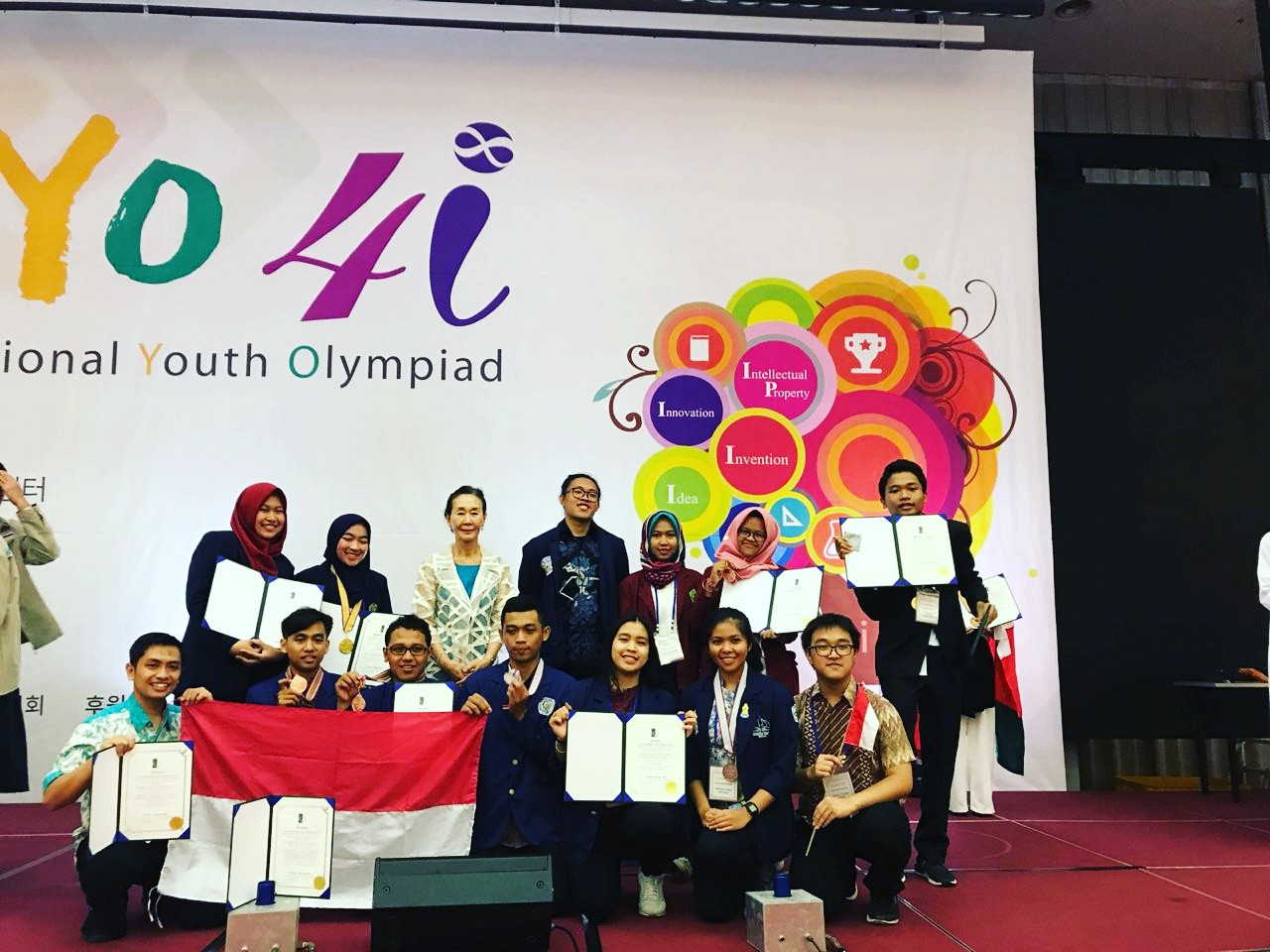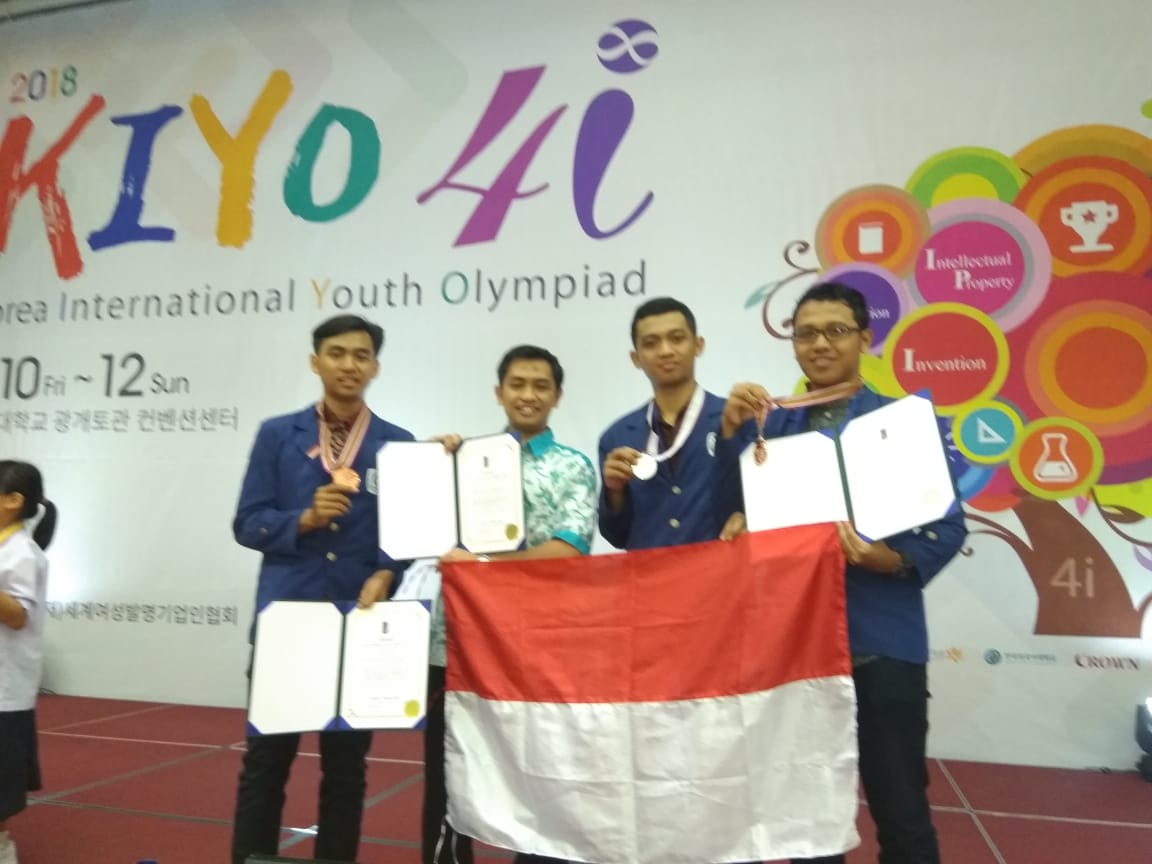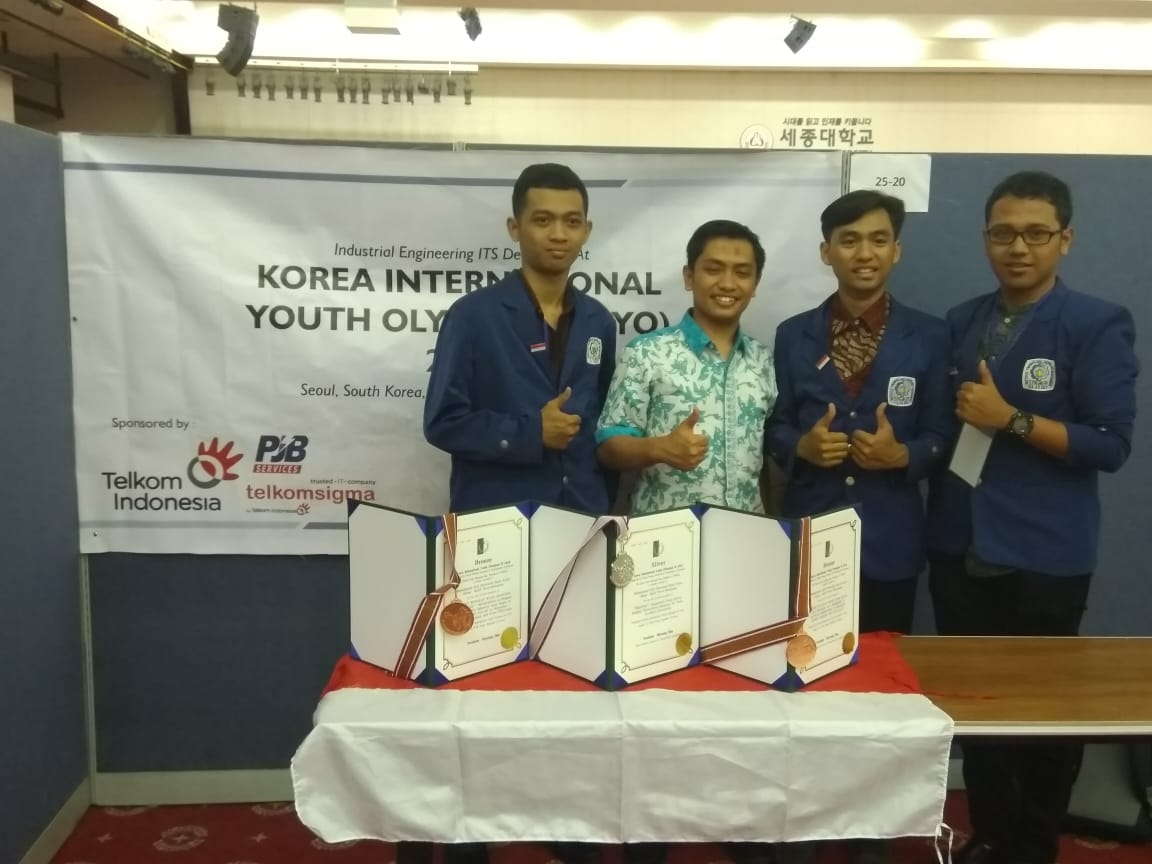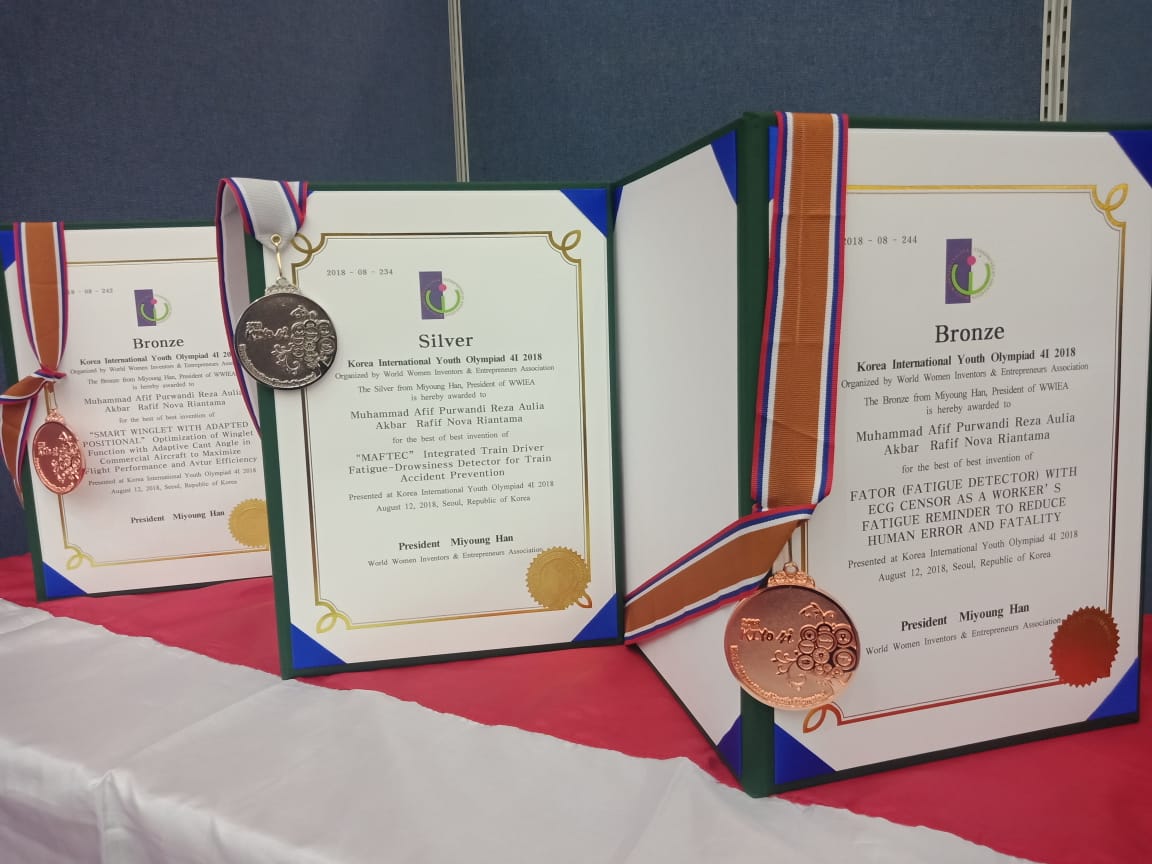Detecting Fatigues, ITS Students Got Three International Awards

ITS Industrial Engineering Team won three awards in Korea
Seoul, ITS News – Students of Sepuluh Nopember Institute of Technology (ITS) Surabaya showed their best capacity, again, in Korea International Youth Olympiad – Idea, Innovation, Invention, and Intellectual Property (KIYO 4I) at Seoul, South Korea. Consisted of three students from the Department of Industrial Engineering, the team managed to get one silver medal and two bronze medals for the best innovation category on Sunday (8/12).
Reporting from International Labor Organization, there were around two million workers who died each year due to work accidents and 32.8 percents of them died due to fatigue. From this unrest, a team consisting of Reza Aulia Akbar, Ragif Nova Riantama, and M. Afif Purwandi innovated a tool to detect fatigues through heartbeat and the blinking of eyes.
Supervised by Dr. Adithya Sudiarno ST MT, the innovation that is called Fatigue Detector (Fator) and Machinist Fatigue Detector (Maftec) managed to qualify for the final round in the KIYO 4I competition held at Sejong University, Seoul, South Korea.

The team while on the podium
“Fator uses Arduino ECG (Electrocardiogram sensor) in its succession, the scheme is to calculate the heart rate of the workers,” Adithya Sudiarno explained. The electro cardiograph sensors installed on the device, according to the expert lecturer in Operational Management, measured how fast each worker’s heart beats. The results are then compared with data from the journal to obtain the fatigue level.
Unlike Fator who competed in the health subcategory, Maftec competed in the technique subcategory by detecting fatigue through the blinking of eyes. “As the name implies, Maftec is intended to detect the exhaustion of train drivers,” added the lecturer who is familiarly called Adith.
Obtained through image processing webcam with a light intensity of 16 lux, the results of the blinking count are then calculated in the Karolinska Sleepiness Scale. If it is concluded that the concerned machinists are feeling sleepy, this tool will send a vibration signal to the train command center.

ITS Industrial Engineering Team shows off the awards they won in Korea
Both of these tools successfully won silver and bronze medals. Not only that, there is one more innovation brought by this ITS delegation. “Our latest innovation is to make commercial aircraft wings more dynamic. “The wings of this creation have proven to be successful in saving the cost of a two million rupiah flight,” Adith said.
This rupiah figure was estimated using a sample of Boeing 737-900ER aircraft that flied the Yogyakarta-Surabaya flights. It was proven that aircraft performance increased by 17 to 23 percents.
Although the team was met with some difficulty with the use of Korean language during the exhibition which lasted for three consecutive days since Friday (8/10), Adith greatly appreciated the performance of the three students. “They are still in their second year, but they managed to astound the foreign jurors,” he said proudly. (saa/ITS Public Relations Officer)

Medal and award plaques received by ITS Industrial Engineering Team in Korea
Related News
-
ITS Supports the Indonesian Economy through Blockchain Research Center Inauguration
ITS Campus, ITS News — Strengthening itself as a center for technology, research, and education, Institut Teknologi Sepuluh Nopember
August 21, 2018 07:08 -
ITS Ranks as the Best University in Marketing in Indonesia
ITS Campus, ITS News — Continuously striving to meet industry needs has successfully brought Institut Teknologi Sepuluh Nopember (ITS)
August 21, 2018 07:08 -
ITS Academic Staff Initiates Work Safety Revolution through Digital Technology
ITS Campus, ITS News — Based on existing report data, 17 kinds of accidents mostly occur due to the lack
August 21, 2018 07:08 -
Insgluni, Non-Invasive Blood Sugar Detection by ITS Students
ITS Campus, ITS News — A team of students from the Instrumentation Engineering Department , Faculty of Vocational Studies, Institut Teknologi Sepuluh
August 21, 2018 07:08
